We are one of the standard setters for hydraulic maintenance in China
Equipped with exceptional technical knowledge, advanced tools, and full in-house machining capabilities, we provide a flexible one-stop solution for hydraulic repairs. Over the past 18 years, we’ve developed the ability to save our customers time and maintain competitive pricing by fabricating and sourcing parts that OEMs no longer supply or support. This allows us to service not only current models, but also obsolete ones.
Our repair capabilities cover components from most major manufacturers. Contact Yshydraulic Today for a free repair quote and experience the difference our expertise makes.
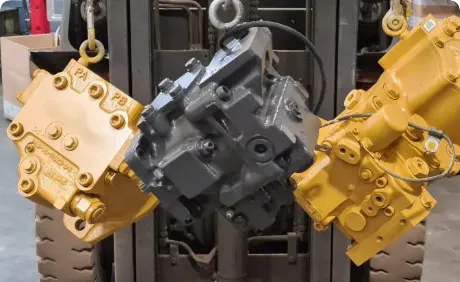
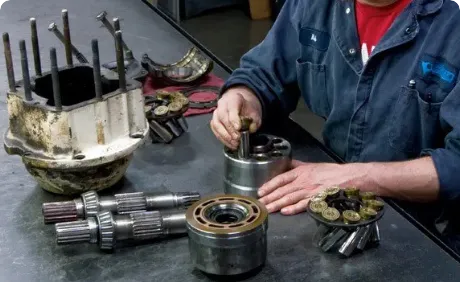
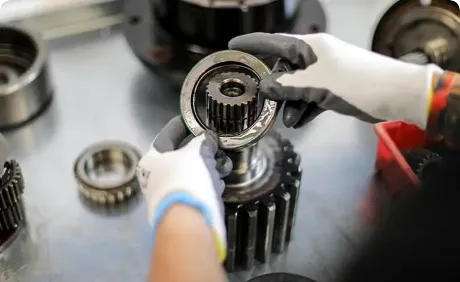
Hydraulic Repair Services
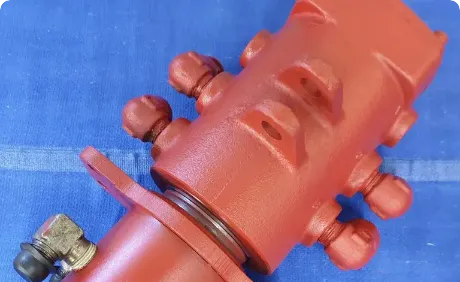
Centre Swivel Joint Repair
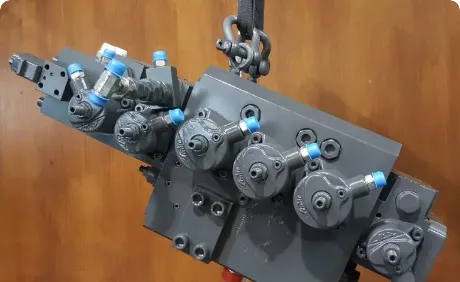
Control Valve Block Repair
Signs You Need Hydraulic Pump Repair
Unusual Noises
A properly functioning hydraulic pump should operate with a consistent, low-level hum. If you begin to hear any new or unusual sounds, it’s a red flag.
-
Whining or Cavitation: This often points to air entering the system, a condition known as aeration, or the formation of vapor cavities in the fluid, known as cavitation. Both can cause significant damage to internal components.
-
Knocking or Banging: These harsher sounds can indicate more severe internal problems, such as worn-out parts or a serious system contamination issue.
Decreased Performance
A noticeable decline in your machinery’s performance is a strong indicator of a hydraulic pump problem. This can manifest in several ways:
-
Slower Operation: If your equipment’s cycle times are longer than usual, it could be due to a loss of flow from the pump.
-
Loss of Power: A struggling pump won’t be able to generate the necessary pressure, leading to a noticeable decrease in the machine’s power and lifting capacity.
-
Erratic Movements: Jerky or unpredictable movements can signal inconsistent fluid pressure from a failing pump.
Fluid Leaks
Any sign of leaking hydraulic fluid should be investigated immediately. Leaks can occur both internally and externally.
-
External Leaks: These are the easiest to spot, with visible fluid around the pump housing, seals, or fittings.
-
Internal Leaks: These are more difficult to detect but can be just as damaging. A sign of an internal leak is a decrease in system pressure and performance without any visible external fluid loss.
Overheating
While hydraulic systems generate some heat during operation, excessive temperatures are a cause for concern.
-
Causes: Overheating can be caused by several factors, including contaminated fluid, restricted fluid flow, or internal pump wear causing increased friction.
-
Consequences: High temperatures can degrade the hydraulic fluid, damage seals, and lead to premature wear of internal components. Temperatures consistently above 180°F (82°C) are particularly damaging.
Contaminated Hydraulic Fluid
The condition of the hydraulic fluid is a direct reflection of the health of the system.
-
Milky Appearance: This indicates water contamination, which can lead to corrosion and reduced lubrication.
-
Foaming: This is a sign of aeration, where air has entered the system.
-
Metal Particles: The presence of metal shavings or particles in the fluid is a serious sign of internal component wear and indicates an imminent failure.
By paying close attention to these signs, you can catch hydraulic pump issues early and schedule necessary repairs, ultimately saving you time and money. Regular maintenance and fluid analysis are also crucial for prolonging the life of your hydraulic system.
* PLEASE ENSURE ALL PARTS ARE CLEANED, DRAINED OF OIL AND FITTINGS REMOVED BEFORE SENDING
